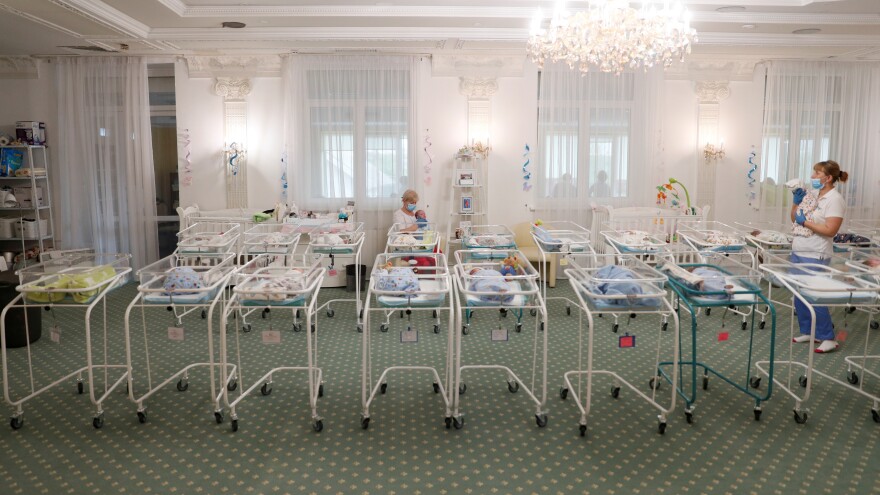The coronavirus pandemic has hit the global business of surrogate birthing, leaving many infants and their new parents thousands of miles apart.
In Ukraine, the company BioTexCom, which runs a human reproduction center in Kyiv, brought attention to the issue when it released a video showing dozens of babies in rows of cots, apparently waiting for their parents to collect them.
"We're doing our best for all the parents of children who are born or are waiting for delivery soon," BioTexCom lawyer Denis Herman says in the video.
About 100 surrogate babies are waiting for parents to pick them up in the country, about half of them at BioTexCom's facilities, the Ukrainian Parliament's human rights commissioner, Lyudmila Denisova, told The Associated Press. The numbers could rise to the thousands, she said, if coronavirus travel restrictions are extended.
Ukraine's surrogate system came to a sudden stop when its government imposed a ban on foreigners entering in March as part of its attempts to fight the coronavirus pandemic. Many parents couldn't leave their home countries, while others have reportedly resorted to entering Ukraine from neighboring Belarus, which has only limited travel restrictions despite the global pandemic.
Amid a growing public outcry, the Foreign Ministry says it is trying to work out a deal with other governments to allow parents to enter the country and pick up their infants.
Ukraine has a large, and legal, surrogacy industry that grew as Ukrainian woman, trying to make money amid the country's economic struggles, turned to carrying babies to term for foreign would-be parents.
While the Health Ministry doesn't provide data on surrogate births, independent experts estimate there are between 2,000 and2,500 surrogate births in Ukraine each year. The Ukrainian surrogate mothers can expect to earn $15,000-$17,000 — with the companies receiving twice that from clients who hail from the United States, Europe and elsewhere.
Copyright 2021 NPR. To see more, visit https://www.npr.org. 9(MDEwMTk5OTQ0MDEzNDkxMDYyMDQ2MjdiMw004))




